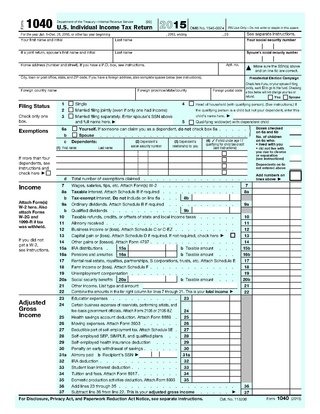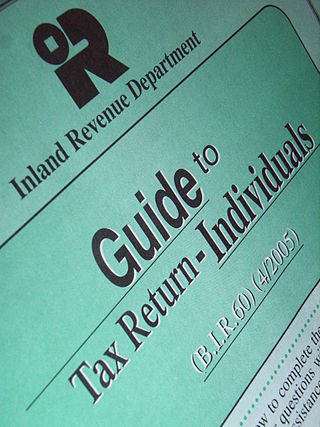Notes
| History | |
|---|---|
| Currency | |
| Industry and Business | |
| Government agencies | |
| Employment and Tax | |
| Infrastructure and Transport | |
| Rankings | |
| Finance and Banking |
|
| Agreements | |
| Energy | |
| Other | |
| |
Partnership taxation in Hong Kong is the taxation of the profits or losses generated by partnership business entities. First, these profits or losses of the partnership are assessed according to the Hong Kong Inland Revenue Ordinance, Chapter 112, section 22. After assessment, then said profits or losses flow through the partnership to the partners who are then taxed on their share of said profits or losses generated by the partnership without any taxes levied against the partnership.
The profits or losses of the partnership are assessed in one lump sum by the managing partner or agent. [1] The tax may be recoverable from the assets of the partnership or the partners directly even if the partnership has dissolved. [1]
A partner is taxed according his or her share of the profits or losses generated by the partnership excluding partnership losses brought forward under section 19C. [2]
The partner's share in this partnership is governed by Inland Revenue Ordinance, Chapter 112, section 22B. Said partner's share equals to the sum of contributions made to the partnership as capital less distributions or constructive distributions. [3] Such contributions may also include the partner's share of the profits plowed back into the partnership. [4] The partner's share is then added to the remaining partners to determine the proportionate share amendable also by any partnership agreement.

A partnership is an arrangement where parties, known as business partners, agree to cooperate to advance their mutual interests. The partners in a partnership may be individuals, businesses, interest-based organizations, schools, governments or combinations. Organizations may partner to increase the likelihood of each achieving their mission and to amplify their reach. A partnership may result in issuing and holding equity or may be only governed by a contract.

A sole proprietorship, also known as a sole tradership, individual entrepreneurship or proprietorship, is a type of enterprise owned and run by one person and in which there is no legal distinction between the owner and the business entity. A sole trader does not necessarily work alone and may employ other people.

A private limited company is any type of business entity in "private" ownership used in many jurisdictions, in contrast to a publicly listed company, with some differences from country to country. Examples include the LLC in the United States, private company limited by shares in the United Kingdom, GmbH in Germany and Austria, société à responsabilité limitée in France, and sociedad de responsabilidad limitada in the Spanish-speaking world. The benefit of having a private limited company is that there is limited liability. However, shares can only be sold to shareholders in the business, which means that it can be difficult to liquidate such a company.
The rules governing partnership taxation, for purposes of the U.S. Federal income tax, are codified according to Subchapter K of Chapter 1 of the U.S. Internal Revenue Code. Partnerships are "flow-through" entities. Flow-through taxation means that the entity does not pay taxes on its income. Instead, the owners of the entity pay tax on their "distributive share" of the entity's taxable income, even if no funds are distributed by the partnership to the owners. Federal tax law permits the owners of the entity to agree how the income of the entity will be allocated among them, but requires that this allocation reflect the economic reality of their business arrangement, as tested under complicated rules.

An S corporation, for United States federal income tax, is a closely held corporation that makes a valid election to be taxed under Subchapter S of Chapter 1 of the Internal Revenue Code. In general, S corporations do not pay any income taxes. Instead, the corporation's income and losses are divided among and passed through to its shareholders. The shareholders must then report the income or loss on their own individual income tax returns.

Income taxes in the United States are imposed by the federal government, and most states. The income taxes are determined by applying a tax rate, which may increase as income increases, to taxable income, which is the total income less allowable deductions. Income is broadly defined. Individuals and corporations are directly taxable, and estates and trusts may be taxable on undistributed income. Partnerships are not taxed, but their partners are taxed on their shares of partnership income. Residents and citizens are taxed on worldwide income, while nonresidents are taxed only on income within the jurisdiction. Several types of credits reduce tax, and some types of credits may exceed tax before credits. An alternative tax applies at the federal and some state levels.
Key person insurance, also called keyman insurance, is an important form of business insurance. There is no legal definition of "key person insurance". In general, it can be described as an insurance policy taken out by a business to compensate that business for financial losses that would arise from the death or extended incapacity of an important member of the business. To put it simply, key person insurance is a standard life insurance or trauma insurance policy that is used for business succession or business protection purposes. The policy's term does not extend beyond the period of the key person’s usefulness to the business. Key person policies are usually owned by the business and the aim is to compensate the business for losses incurred with the loss of a key income generator and facilitate business continuity. Key person insurance does not indemnify the actual losses incurred but compensates with a fixed monetary sum as specified in the insurance policy.
International taxation is the study or determination of tax on a person or business subject to the tax laws of different countries, or the international aspects of an individual country's tax laws as the case may be. Governments usually limit the scope of their income taxation in some manner territorially or provide for offsets to taxation relating to extraterritorial income. The manner of limitation generally takes the form of a territorial, residence-based, or exclusionary system. Some governments have attempted to mitigate the differing limitations of each of these three broad systems by enacting a hybrid system with characteristics of two or more.

Salaries tax is a type of income tax that is levied in Hong Kong, chargeable on income from any office, employment and pension for a year of assessment arising in or derived from the territory. For purposes of calculating liability, the period of assessment is from April 1 to March 31 of the following year.
In Hong Kong, profits tax is an income tax chargeable to business carried on in Hong Kong. Applying the territorial taxation concept, only profits sourced in Hong Kong are taxable in general. Capital gains are not taxable in Hong Kong, although it is always arguable whether an income is capital in nature.

The Inland Revenue Ordinance is one of Hong Kong's Ordinances. It regulates the inland revenue of Hong Kong.
Commissioner of Inland Revenue v George Andrew Goepfert, also known as the Goepfert case, is a leading Hong Kong tax case, affecting jurisprudence relating to the territory's salaries tax.
Under Article 108 of the Basic Law of Hong Kong, the taxation system in Hong Kong is independent of, and different from, the taxation system in mainland China. In addition, under Article 106 of the Hong Kong Basic Law, Hong Kong has independent public finance, and no tax revenue is handed over to the Central Government in China. The taxation system in Hong Kong is generally considered to be one of the simplest, most transparent and straightforward systems in the world. Taxes are collected through the Inland Revenue Department (IRD).
A partnership in Hong Kong is a business entity formed by the Partnerships Ordinance, which defines a partnership as "the relation between persons carrying on a business in common with a view of profit" and is not a joint stock company or an incorporated company. If the business entity registers with the Registrar of Companies it takes the form of a limited partnership defined in the Limited Partnerships Ordinance. However, if this business entity fails to register with the Registrar of Companies, then it becomes a general partnership as a default.
Partnership taxation is the concept of taxing a partnership business entity. Many jurisdictions regulate partnerships and the taxation thereof differently.

Carried interest, or carry, in finance, is a share of the profits of an investment paid to the investment manager specifically in alternative investments. It is a performance fee, rewarding the manager for enhancing performance. Since these fees are generally not taxed as normal income, some believe that the structure unfairly takes advantage of favorable tax treatment, e.g. in the United States.
Budget Note 66 (BN66) is the mechanism by which the UK government introduced clause 55 of the Finance Bill 2008, which would later become Section 58 of the Finance Act 2008. This specifically targeted tax planning and tax avoidance schemes that made use of offshore trusts and double taxation treaties to reduce the tax paid by the scheme's users which had previously been legal. This arrangement was originally used by property developers but was then heavily marketed to the freelance community after the introduction of intermediaries legislation known as IR35, because it appeared to offer more certainty concerning tax liabilities than would be the case if running a limited company.
Taxes in Germany are levied by the federal government, the states (Länder) as well as the municipalities (Städte/Gemeinden). Many direct and indirect taxes exist in Germany; income tax and VAT are the most significant.
A Look-Through Company (LTC) is a kind of tax structure for New Zealand companies with limited liability, which allows the company in question to transfer its income and expenditure to its shareholders directly. The LTC has replaced the previously popular Loss Attributing Qualifying Company and will be a simpler alternative to Limited Partnership; however, this new structure differs in a number of key areas.

Hong Kong–Liechtenstein relations refers to international relations between Hong Kong and Liechtenstein.